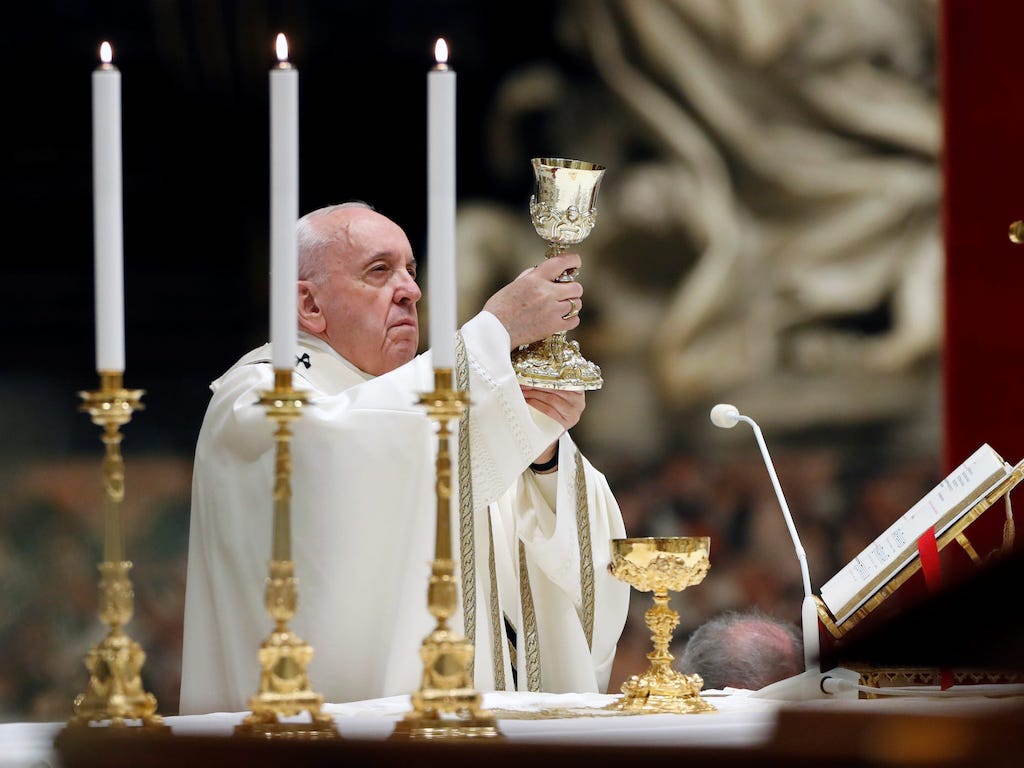3 Mins Read
In a recent interview published by the magazines Tablet and Commonwealth, Pope Francis said that the coronavirus pandemic is one of “nature’s responses” to humans ignoring ecological and climate catastrophes. The Pope added that the outbreak offers the planet an opportunity to reflect on unsustainable production and consumption, and to learn to practice compassion for others in times of uncertainty and difficulty.
“We did not respond to the partial catastrophes. Who now speaks of the fires in Australia, or remembers that 18 months ago a boat could cross the North Pole because the glaciers had all melted? Who speaks now of the floods?” said the 83-year-old pontiff.
Recalling the climate disasters that humankind has ignored so far until the coronavirus pandemic swept the entire world, the Pope said: “I don’t know if these are the revenge of nature, but they are certainly nature’s responses.”
The Pope’s answers were a response to a question about whether the pandemic may pave the way towards more environmentally-conscious ways of life, according to the New York Post.
Speaking about the need to be more attuned to humankind’s impact on the planet, Pope Francis said: “This is the time to take the decisive step, to move from using and misusing nature to contemplating it.”
“I believe we have to slow down our rate of production and consumption and to learn and to understand and contemplate the natural world,” he added. “We need to reconnect with our real surroundings. This is the opportunity for conversion.”
He also criticised some governments’ response to the pandemic, especially regarding disadvantaged and marginalised groups such as homeless people. In the United States, homeless people in Las Vegas have been quarantined in parking lots to maintain distance with others, while many hotels stayed empty.
“This is the moment to see the poor,” he said, warning that people must practice compassion for others in times of need and uncertainty.
He reiterated a similar message about nature and kindness in the following days during his live-streamed Easter Sunday mass from an empty St Peter’s Basilica in Rome.
“In these weeks, the lives of millions of people have suddenly changed. For many, remaining at home has been an opportunity to reflect, to withdraw from the frenetic pace of life,” said Francis in his stern Urbi et Orbi blessing after the mass. He called on those who are privileged to stay safe and sheltered at home to reflect on our unsustainable existence, as well as our duties to reach out to others in less fortunate circumstances.
“Let us not lose the opportunity to give further proof of solidarity…The only alternative is the selfishness of particular interests and the temptation of a return to the past, at the risk of severely damaging the peaceful coexistence and development of future generations,” he said.
Pope Francis’ words of advice mirrors that of renowned anthropologist, animal activist and primatologist Jane Goodall, who recently posted a video message urging the world to reflect on their relationship with nature and wild animals.
She called on people to take the pandemic as a lesson, and understand that like humans, animal too feel pain and suffering. Environmental and climate problems have not only destroyed their natural habitats, but humanity’s exploitation of animals has brought about more global health threats like the current Covid-19 pandemic.
“Our too-close relationship with wild animals in the markets or when we use them for entertainment has unleashed the terror and misery of new viruses,” warned Goodall.
Read our earlier coverage of Covid-19 here & find more news on the climate emergency here.
Lead image courtesy of Reuters.



